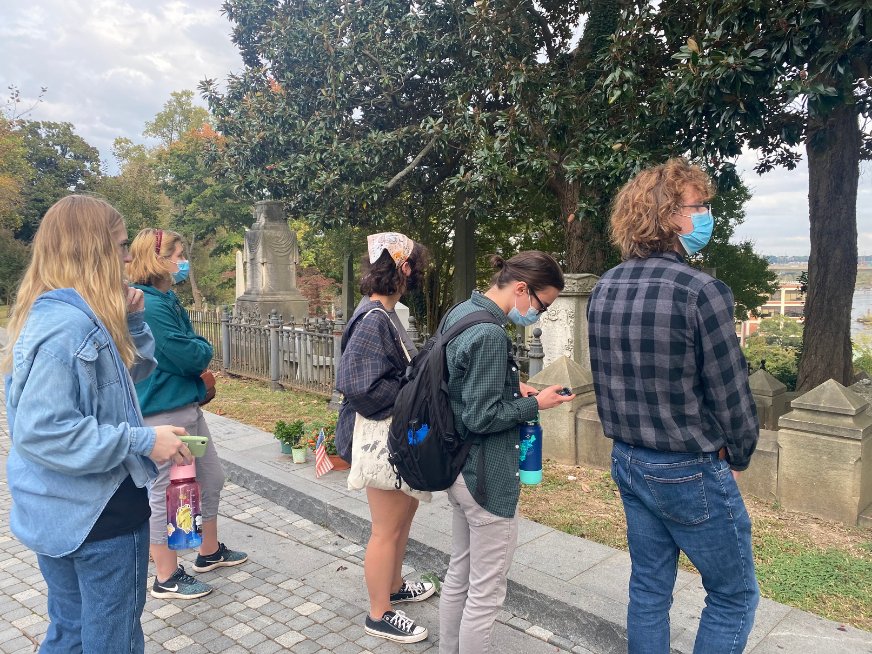Capstone Choices: The Unique Opportunities of HIST 490 for VCU History Majors
Sept. 27, 2024

As history majors at VCU approach the final stages of their degree program, they encounter a pivotal decision: History 490 or History 493. While students have the option to enroll in both, many opt for the latter, finding that a semester-long internship can often seem less daunting than tackling a 20-page essay. For those who choose to embrace the challenge of History 490, they are rewarded with a diverse array of topics that cater to a wide range of interests, as the course themes are refreshed every semester.
History 490 is a capstone course intended only for history majors. It provides an intense study in seminar format, often including a research-based final project. The small class size helps students and professors dig deeper into topics and materials related to the faculty’s strengths. This course positions the students as peer researchers more so than in any other class. Students are allowed to take HIST 490 up to three times, for a maximum of nine credits. Students are encouraged to take the seminar course, even if they are also taking HIST 493.
Ryan Smith, Ph.D. has been teaching 490 since 2010. His topic is often on Richmond’s historic cemeteries, where students go on field trips, meet with archivists and activists, and do project-based work. Richmond Cemeteries is a class that is intended to draw together the skills students have previously developed. From colonial era funerals and practices to modern day ones, those spaces have been very lively. They show elements of art, faith, public history, historic preservation and historical memory.
“Students learn from each other as much as they learn from me,” Smith said. “Hopefully my students leave the course with a substantial product of their own that they can really be proud of and add to their portfolios.” Examples of the work done by Smith’s students, such as Katherine Schmitz’s useful study of the Medical College of Virginia’s Chris Baker, can be found on richmondcemeteries.org.
The second section of HIST 490: Mao and the Chinese Communist Party is being taught by John Herman, Ph.D. The purpose of this course is to introduce students to the history of revolutionary China through the life of Mao Zedong, whose disappointing experience of the Republican Revolution led him to become a founding member of the Chinese Communist Party in 1921. The course will continue through his establishment of the People’s Republic of China, and his most revolutionary years that include the Great Leap Forward and the Great Proletarian Cultural Revolution.
Brooke Newman, Ph.D. has previously taught “Contesting the Past” as a 490 topic, as well as other topics such as Atlantic piracy, Victorian England and the British Empire. “Contesting the Past” focuses on the history of slavery and public memory, specifically through analysis of historical monuments and their contested meanings.
“HIST 490, in my view, offers an excellent opportunity for our majors to read, research and write about topics of interest to them under the guidance of a faculty member,” Newman stated.
Newman states that Atlantic piracy was the most popular, as students were able to read secondary works on the history of piracy and delved into their own primary research. She hopes to teach a 490 class that focuses on Witchcraft in the near future.
Sarah Meacham, Ph.D. the new director of undergraduate studies, has also taught 490, with her section focusing on colonial American history Meacham believes that taking 490 is a great way for history majors to decide if graduate school is the next step for them. Students are given the chance to create their best writing samples of publishable quality that is able to be used for any type of future application.
“Even if you’re not considering grad school at this time, we live in a culture where we write all the time,” Meacham said. “You want to be able to express yourself in writing precisely, concisely and persuasively. The seminar courses really drill down and focus on making students the best possible writers.”